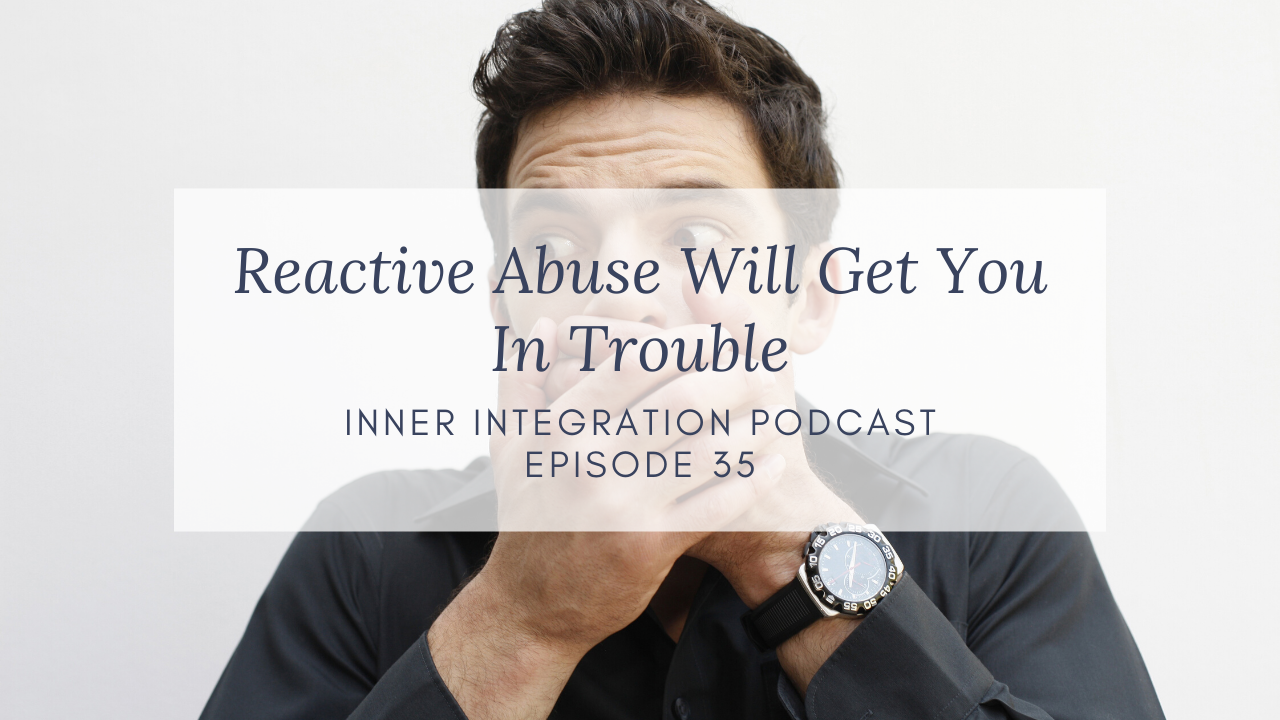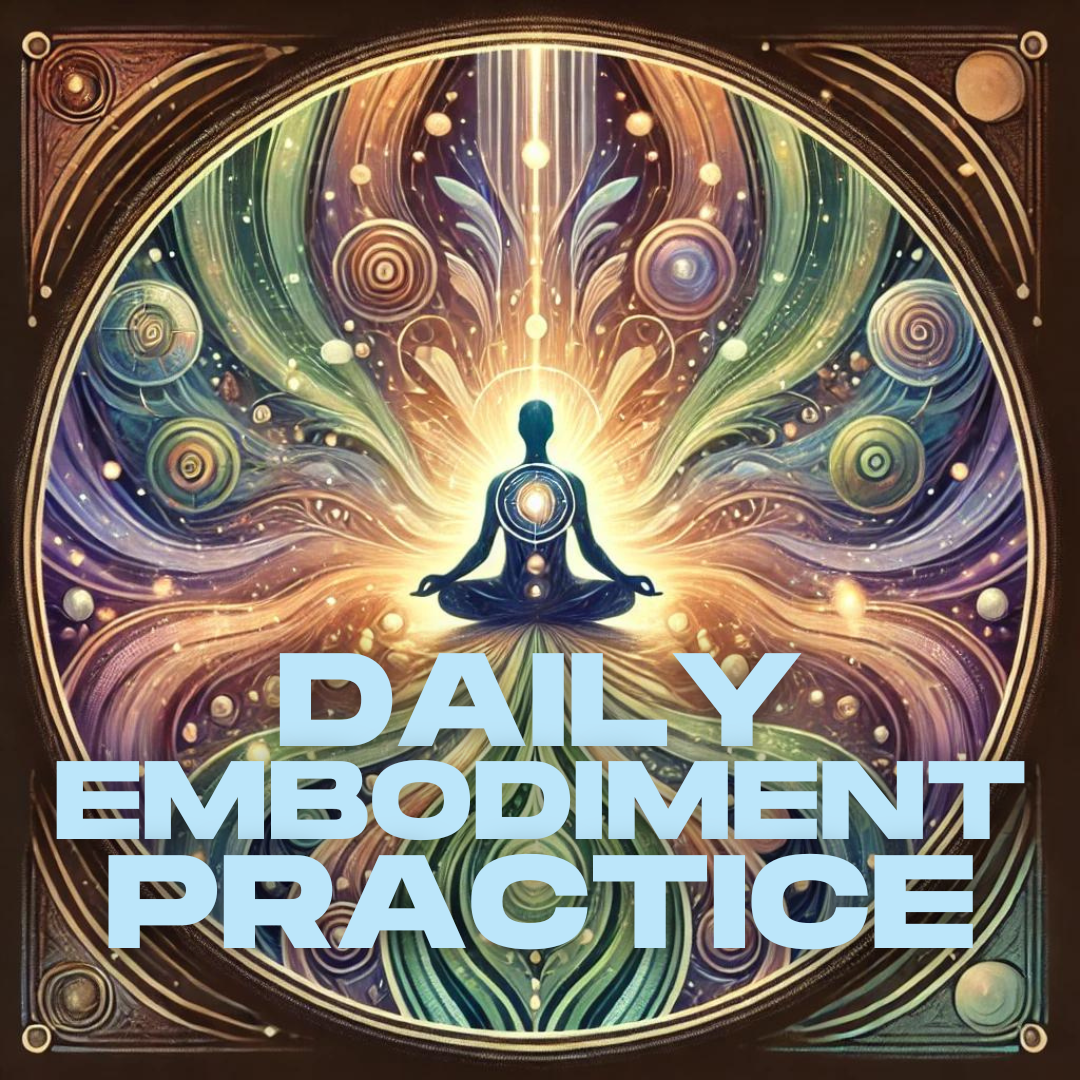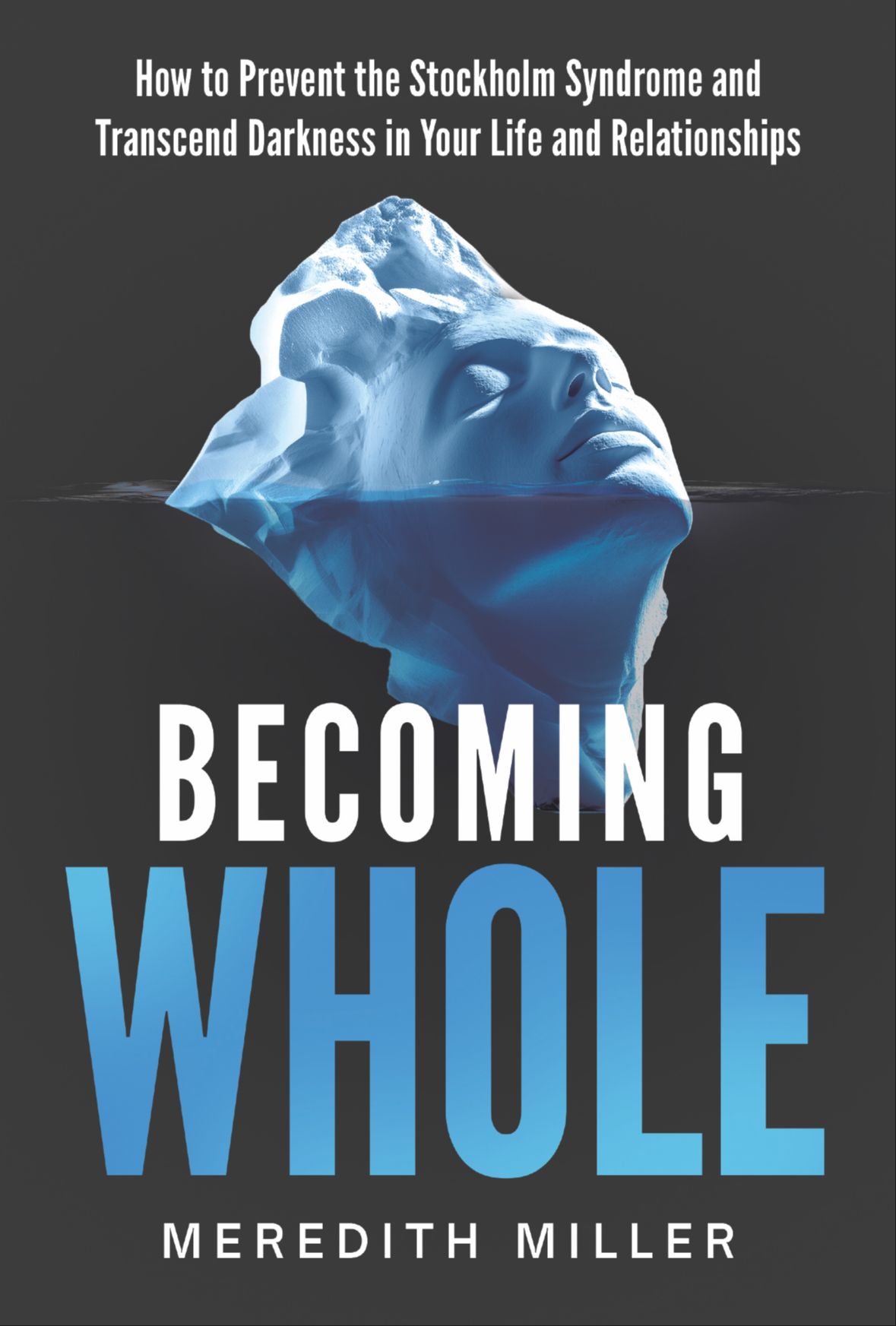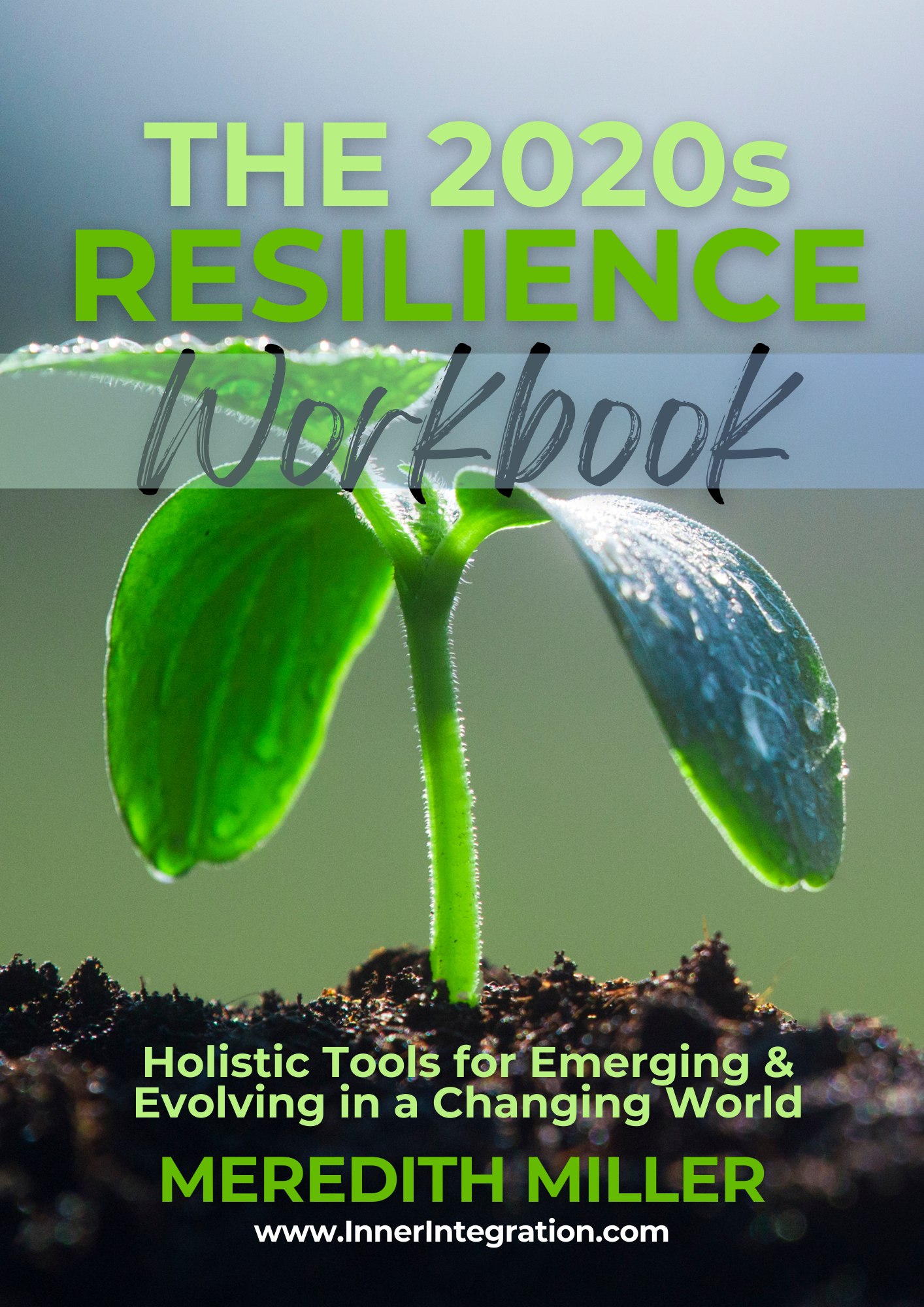Reactive Abuse Will Get You In Trouble

A common trap that victims of abusers get caught in, is reacting to the abuse and provocations. Sometimes even with aggression or violence. This will get you in trouble every time.
In this episode I’m going to talk about what reactive abuse is, why it’s important to be aware of this trap, and what you can do about it so you stop giving your power away.
Are you looking for a licensed therapist to help you in the aftermath of narcissistic abuse? As you probably know, I no longer offer one-on-one coaching sessions so I want to recommend BetterHelp, an online portal of licensed therapists providing affordable therapy to you from the comforts and privacy of your home. You can chat online with your therapist or talk on the phone for sessions. When you visit https://betterhelp.com/integration , you’ll get 10% off your first month. You’ll find the direct link in the show notes. That link will take you to their intake questionnaire where you’ll answer some questions about what you want to work on. Be sure to check the box for abuse and trauma so they can match you with a therapist who specializes in that area. And, if at any point you want to switch therapists, you can also do that at no additional charge.
Reactive Abuse is when the abuser does or says something to provoke you, then you react and then they focus on your reaction to the abuse and ignore the abuse that took place.
“They’ll call you abusive for reacting to their abuse” is how people often define it.
Sometimes this is a blame-shift by the abuser to make you feel responsible for their abuse because you got upset and reacted emotionally. However, other times, they could be right. You might have done something abusive in return. Your reaction doesn’t excuse their abusive actions, but remember, it doesn’t excuse yours either.
Abusers don’t own the responsibility for their actions so they are in the perpetual search for a scapegoat on whom to project their shame and problems. They are itching for an excuse to blame you. If you allow yourself to fall into the trap of reactive abuse, you’re fulfilling the wet dreams of your abuser. This reaction usually happens because you’ve tolerated and stuffed the anger, frustration and emotional upset long enough that one day you finally snap and unleash it.
No, it’s not fair. Not at all. But don’t lose your integrity or sanity in the process. It’s crazy-making. It’s set up to be like that. But be careful because if you fall into this trap, you’ll end up with lots of regrets and maybe even some additional problems.
First, you’ll lose your integrity, which will bring down your self-worth. You might even get in trouble with the law. You’ll likely be on bad terms with other people who observed your reaction (whether they saw the abuse before that or not) but the worst trouble it causes is for you to be on poor terms with yourself.
If you’re being accused of being abusive, ask yourself: Did you do something abusive back? Did you throw something at them, or verbally abuse them, or physically lash out at them?
If you did, now you’re dirty too. So what’s your plan, are you just going to keep throwing mud at each other until one of you really gets hurt? Be careful, you’re playing with fire. The abuser might even call the police and file a restraining order or press charges against you because you actually did something abusive to them, even if they did 1000x times more abusive things to you. Chances are, no one is going to see the things the abuser did to provoke you, they’re only going to see your aggression. That goes for law enforcement too.
If you didn’t do something abusive, ask yourself: Did you do something hurtful?
Maybe it wasn’t abusive but you said or did something to hurt the other person. Intentionally or not, you’re still responsible for what you did. When you hurt someone else, even if it was provoked, you’re going to feel bad about what you did and about how you showed up in that moment as less than the character you know you are.
Maybe you didn’t abuse or hurt the other person, but did you say or do something in reaction to the abuse that now you’re ashamed of and wish you hadn’t done? Sometimes the emotional reaction is blurting something out that might be true, but also is going to make you look really bad because no one else understands the provocation that happened before you blurted that out and they’re only going to see your part and wonder what’s up with you.
Reactive abuse will always make you look bad, even when you didn’t do anything wrong but you just made a fool of yourself in front of others. When you do something wrong, something hurtful and/or abusive, that’s going to haunt you more than anything else because you’re going to know how you stepped out of integrity, how you lowered yourself to the abuser’s level, how you lost control of yourself and also your power in that relationship because they’re now going to hold that over you... forever.
I see too much victim-coddling on this topic and I want to clear it up with a dose of tough love founded in self-responsibility. While you are never responsible for the abuse that the other person does, you are 100% responsible for your actions.
While it’s understandable that you reacted to the abuser’s provocations, it’s also not okay for you to treat people with violence. If that sounds like a blame to you, then recognize that you’re still in the Victim Stage of recovery. If you want to become a survivor, you’ll need to take ownership of 100% responsibility for your life.
If you’re still not understanding this, let me ask you a question. If you were yelling at your partner for not picking up their clothes or letting the dishes pile up in the sink and you escalated that to a level of verbal abuse saying “you’re such a loser, you can’t do anything” while you’re throwing their clothes out the window or the dishes across the room. Then your partner punches you in the face. Do you just let that part go since you were the one who provoked him?
“He made me do it” is not a viable excuse for your behavior either. That’s what the abuser says. Maybe your abuser cheated or stole money from you or physically hit you or damaged your property, then they said to you, “You made me do it.” Is that a viable excuse for the abuser? No. Of course not. So don’t use the same excuse to justify your reaction to their actions. Don’t become like them. Take responsibility for yourself.
Now, if someone physically assaults you, that’s a different story. If you’re physically attacked, you’ll likely need to physically fight back and run away in order to save your life. You should never, ever stay or return to a person who physically attacks you. That’s a one and done behavior.
In this episode, I’m referring to psychological abuse, not physical abuse. These are cases where the abuser verbally insults you, calls you names, denigrates you, shames you, or uses any other covert aggressive forms of manipulation. If you respond to a verbal assault like that with more verbal abuse or a form of physical aggression, you have joined your abuser on that level so don’t be surprised if they call you abusive.
Keep in mind that you’re NOT abusive if you set boundaries that the abuser doesn’t like. You’re NOT aggressive for saying no and enforcing your boundaries. You’re NOT abusive if you take a step back and some space to reflect on what happened and where things are after a bad situation that took place. You’re NOT abusive for putting your self-care before taking care of someone else who demands all your time and attention. These are, in fact, acts of self-responsibility. The abuser will often interpret these actions as abuse because they didn’t get what they wanted from you, but that doesn’t make you abusive.
When you get called abusive in these situations you can guarantee that’s a blame-shift so the abuser can make you feel crazy, aggressive or selfish for setting boundaries and prioritizing your self-care over people-pleasing and giving them what they want.
So what can you do if you realize you’ve fallen into the trap of reactive abuse?
Here are 5 steps to restoring your integrity and power:
-
Self-responsibility — Remember you are 100% responsible for your words and actions at all times. Choose these carefully, even when you’re being provoked. If you’re not accepting self-responsibility over your life, then you’re still a disempowered victim. Your power comes from owning 100% responsibility over your life.
-
Be the bigger person — Learn how to master the Respond vs. React technique so you don’t lower yourself to the abuser’s level and later regret your words and actions. Breathe 3x, observe the other person and the situation without feeling part of the drama scene, then ask yourself: How do I really want to respond? Check out Ep 30 Responding vs. Reacting for more help on that topic.
-
Stand in integrity — You’re in integrity with yourself when your Values + Actions are in alignment. If you take an action against your values, then you have stepped out of integrity. If this is an area you want to work on, you can check out Ep 33 Get Your Integrity Back After Disappointments In Love.
-
Get a Reality Check — If it gets to this point of reactive abuse, stop and reevaluate why you’re still there. Why are you hanging out with that person? Do an Inner Inventory: What cost comes with having contact with that person? When you have to lose your self-worth in order to maintain a relationship in your life, whatever kind of relationship that is (romantic, friendship, family, social contact, etc), when you lose your self-worth, you lose your foundation of the 4 Pillars of Recovery and they’ll all come crashing down. If you still didn’t get your free copy of the 4 Pillars of Recovery PDF, check the link in the show notes to get instant access to that 8 page report that will help you rebuild and maintain these 4 pillars.
-
Get next level boundaries — Your boundaries protect your standards, which are set up to honor your values. This is the process of generating self-worth. If you want to have self-worth, you need to know your values and protect them with boundaries. When your values are clear, that’s when you can ask yourself if you should you be No Contact with that person. Does that person match your values and standards? Or do you need to have more boundaries with them in order to protect your values and therefore your self-worth? Some other helpful questions to ask if you’re not sure if you need more boundaries: Do you like who you are or are becoming when you’re with that person? Do you want to be like that person? Do you want to do or say things you regret later? Then what are you doing, baby? Re-evaluate your boundaries.
The bottom line is this. If you’re finding yourself in an extreme or exasperating situation or situations, where you’re constantly being provoked and you feel like you need to react to the abuse in order to try to take control back, I want to encourage you to see that you’re putting your energy into trying to control the wrong thing. Nothing good will come from trying to control another person, from trying to get an abuser to stop abusing you or from trying to get an abuser to admit that what they’re doing is wrong and you’re right. It’s not going to happen! That’s a huge waste of your time and energy and eventually, it will get you in trouble when they catch you in a weak or unguarded moment and you react. Not to mention your life could be in danger by staying with someone like that.
If you want to set yourself up for success, work on ending that relationship or exiting that situation so you don’t go through that again. If you’re becoming someone you’re not through any kind of relationship or situation, you’re in the wrong place hanging out with the wrong people. Walking away when you can’t win is not weakness. It’s strength.
Remember one of the worst parts of reactive abuse often happens because the abuser is going to hold over your head your actions forever. You have a conscience and you can feel guilt, so that is going to eat you up inside. You’ll start giving the abuser free passes to hurt you. You’ll excuse more abuse because you feel an imbalanced amount of guilt over what you did. They’ll keep throwing it back at you, while of course never addressing their own responsibility for anything they did. When you make the mistake of reacting you won’t be able to forgive yourself for a long time because the internal guilt and shame will be crushing and it will only be worse because the abuser will keep reminding you of that time you did that thing you did.
Be extra careful with the covert types of abusers who don’t have to say anything in the moment to provoke you. They’ve already set the stage before anyone else could witness it. Maybe it was a subtle thing they said or something they did or didn’t do that made you upset. Then in the moment you’re with them and others, you suddenly react and look bad. Maybe they used a silent form of dog-whistling or maybe it was just the build up of what they did earlier behind the scenes. Maybe it was the overload of anger that you felt when they acted super sweet and enchanting to everyone else at the table who had no idea what that person had just done to you earlier. Then maybe you misdirect your anger toward someone else at the table or just blurt out something in front of everyone that makes you look crazy or selfish, or maybe you even lash out at the abuser. No one saw the provocation, they just saw your reaction.
It’s normal to react poorly to the extreme situation of abuse. It’s normal to fall into that trap several times. At a certain point you’ve got to pull up your big girl or big boy pants and get real with yourself. Ask yourself, how many more times will you choose to learn that lesson? How much longer will you stay in an abusive dynamic, justifying your reactions based on what the abuser did to provoke you and then feeling sorry for yourself because you fell in again?
In that moment of reaction, instead of maintaining self-control, you let the negative energy win by falling into it. Instead of getting out, you got in deeper. Now you need to own responsibility for your actions and words. To the crowd watching, you might have looked like a nutcase because they only saw your reaction. Notice how the abuser likely smirked in that moment when they had you right where they wanted you. They took the power and control over you and the situation because you let the dark forces take over. You lost self-control.
Yes you were provoked. Probably intentionally, maybe not. It wasn’t fair but it happened. And you’ve got to take responsibility for your actions too.
Reactive abuse is a loss of self-control. It’s on you when you do that. Your past programming causes these subconscious, impulsive reactions. Probably in the moment you didn’t even see another option. You might have instantly felt like you were a kid with your abusive parent who you had to obey and follow. So now as an adult when you lose control of your mind or behavior by letting the dark forces take over, like when the abuser provokes you, you might forget that you’re an adult now and you can give yourself permission to opt out, to go your own way, to respond instead of reacting.
If you get caught in the fear, the desire for a comeback, revenge fantasies and negative thinking, all of that can get in and take over your mind. This is dangerous. Now you’re on the abuser’s wavelength. You’re caught in the spider web. Then from a distance they just have to pluck on one of those strings and they move you exactly where they want you. You need to get out of that web before they wrap you more tightly.
It’s not a one-way street where just the abuser has to own self-responsibility. You don’t get out of responsibility just because you’re the victim. When you fall into the trap, if you choose to react, if you do something hurtful to someone else, you have to own your self-responsibility too.
The only way out is self-responsibility. There will always be tests in life. You might not recognize them in the moment. You might be owning self-responsibility in your life and then suddenly you stumble upon a trap that shows up. You can get caught off guard and fall into the web. You want to avoid this if at all possible. Even when you’re owning self-responsibility in life, abusers can find a way to hit your weak spots. When that happens and if you failed the test, remind yourself to grab the reins of self-responsibility again and vow to do better next time.
If you didn’t see the trap and you did something you regret, especially in front of a group, own it and make it right to yourself and/or anyone else you might have offended or hurt. Again, this does not excuse the abuser’s actions or words. You’re not taking ownership of their stuff, just your own.
Then retrace or reverse-engineer your steps. What was the moment where you lost self-control? At what specific point did you make a bad decision or an impulsive reaction that you now regret? What should you have done instead? This process isn’t to beat yourself up for what you did, but rather to learn something from that experience and train your subconscious to do something different next time.
There will be shame and guilt after you react. Don’t beat yourself up (though this is easier said than done) but do discover in retrospect where you should’ve made a different decision to honor your values and standards, to take care of yourself first. And definitely make it right to anyone else involved.
You can’t rewind the clock and do something differently no matter how much you wish you could. But you can retrace your steps in your mind. You can identify the point where you lost self-control so you can program your mind to choose a different response next time.
This way you start to recover your identity and integrity. The abuse hurts but what hurts the most is when you hurt yourself by not honoring your values and who you really are. Choose to respond instead of reacting so you can be on good terms with yourself.
Keep in mind this retraining process from reacting to responding is not going to be resolved after one attempt or even after a few months. This takes time. You’re retraining your mind and brain to create new patterns. That will take place on a perceptual level, a behavioral level and also a neurological level as new neural pathways are being created and the old ones are being unplugged. This is how you create new habits. When your habits are ingrained since childhood, it takes time to override but it is possible.
Be sure to notice and celebrate the progress along the way. Learn from your failures and program your mind to do differently next time. There will be surprises, life is full of those, so look at them like opportunities to grow.
To avoid the trap of reactive abuse and getting yourself in trouble with others, with the law, and most importantly in your relationship with yourself, get self-control again. Get responsible. The sooner the better. Understand that when you’re reacting to an abuser, you have lost your power. You’ve given your power away to the abuser no matter how much you try to fool yourself into thinking that your reaction was a demonstration of power. Take your power back not by lashing out and reacting, which is actually a sign of weakness not strength. Instead, take your power back by giving yourself the opportunity to respond instead.
Remember to check out Episode 30 on Responding vs. Reacting if you want to work on not reacting to abusive people. This will also help you in life because life will throw at us stressful experiences that could cause us to react impulsively instead of taking the time to respond how our Higher Self would want to.











